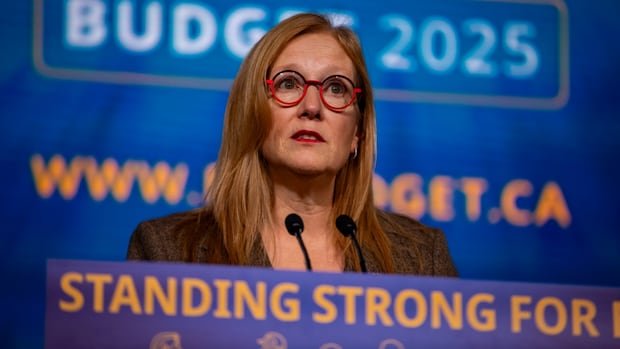British Columbia’s latest fiscal plan, named “Standing Strong for B.C.,” is setting new records for provincial debt. The finance minister, Brenda Bailey, defends the budget as a necessary response to U.S. tariffs while ensuring essential public services are maintained for residents. Bailey described the budget as pragmatic, focusing on navigating uncertain economic times to prioritize people and support businesses for a resilient future.
The 2025-2026 fiscal plan outlines significant expenditures totaling nearly $95 billion. Key allocations include $5.1 billion for hospital construction and upgrades, $1.4 billion for healthcare services, and $1.5 billion for school improvements, including the creation of 261 new classrooms with prefabricated structures. Additionally, $392 million is earmarked for prefabricated school additions in 16 school districts.
Revenue projections for the plan stand at $84 billion, with anticipated lower deficit budgets for 2026 ($10.2 billion) and 2027 ($9.8 billion). The budget was crafted considering potential U.S. tariffs on Canadian energy products and other goods.
B.C. Premier David Eby expressed confidence in overcoming challenges posed by tariffs, emphasizing unity and resilience. The budget includes $4 billion in contingency funds for 2025 and subsequent years to mitigate the impact of expected revenue losses from tariffs.
Other measures in the 2025-2026 fiscal plan encompass an ICBC rebate, enhanced support for families through the Rental Assistance Program, and increased funding for programs like the Shelter Aid for Elderly Renters. To stimulate economic growth, tax credits for video game and film production companies will be raised, with infrastructure spending aimed at bolstering supply chains for market access.
Critics have raised concerns about unmet election promises not fully addressed in the budget, such as mental health support in schools and affordable housing initiatives. However, the government remains committed to achieving balanced budgets in the future.
Despite criticisms, the government maintains that B.C.’s debt-to-GDP ratio remains manageable and competitive with other jurisdictions. However, the Canadian Taxpayers Federation has expressed apprehensions about the budget’s impact on taxpayers, families, and businesses, predicting a potential credit rating downgrade for the province.
Looking ahead, the government aims to chart a path towards balanced budgets to avoid prolonged deficits. The 2024 fiscal plan showed a decrease in the projected deficit, attributed to improved corporate tax revenues and ICBC’s financial performance. Opposition voices have underscored the need for responsible fiscal management amid economic challenges, cautioning against excessive reliance on external factors for budget shortfalls.

